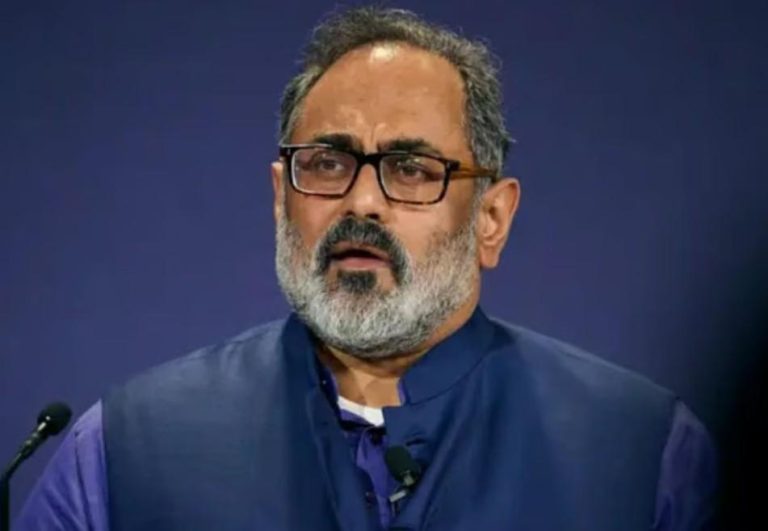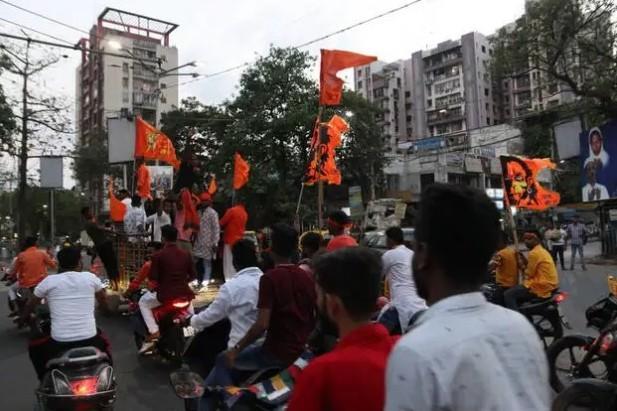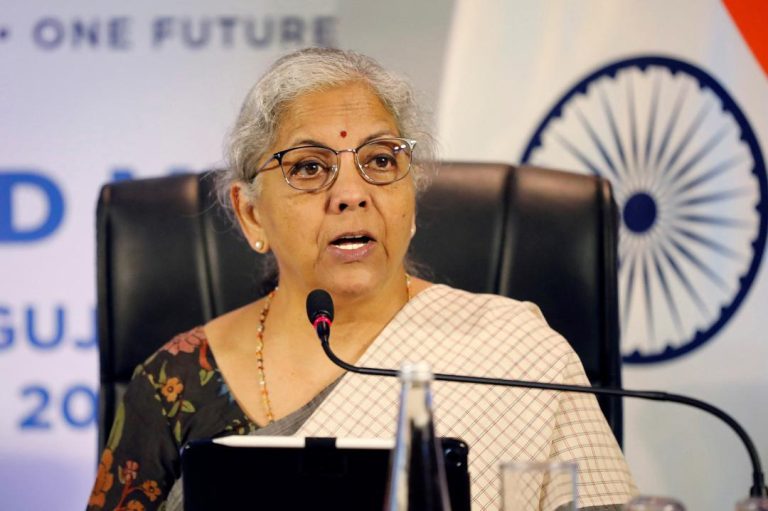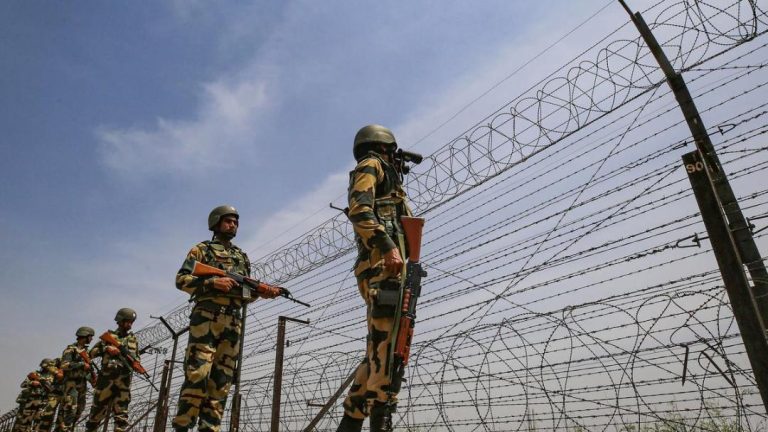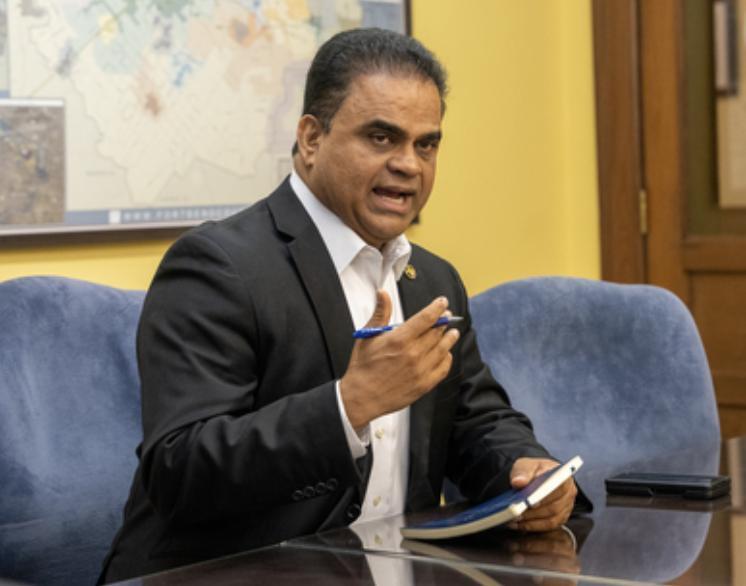Bhutan King visits Maha Kumbh; takes holy dip with UP CM
In a rare instance of inter-country cultural exchange, Bhutan King Jigme Khesar Namgyel Wangchuck visited Prayagraj on Tuesday and took part in the ongoing Maha Kumbh mela. The King was seen taking a holy dip at the Triveni Sangam, the sacred confluence of the Ganga, Yamuna, and Saraswati rivers, along with Uttar Pradesh Chief Minister Yogi Adityanath.
Before taking the holy dip, Wangchuck offered prayers and performed aarti at the Sangam Ghat, a historic and revered spot at the Triveni Sangam. The King’s visit to Prayagraj was a significant event, not only for the people of Bhutan but also for the millions of devotees gathered at the Maha Kumbh mela.
Wangchuck landed in Lucknow on Monday and was welcomed with cultural performances at the Chaudhary Charan Singh International Airport. The King was accompanied by a high-level delegation, including the Prime Minister of Bhutan, Lotay Tshering, and other officials.
The King’s visit to Prayagraj was seen as a symbol of cultural and spiritual exchange between the two nations. Bhutan is known for its unique cultural heritage and its strong Buddhist traditions, and the King’s participation in the Maha Kumbh mela was a testament to the country’s rich cultural diversity.
The Maha Kumbh mela, which takes place every 12 years, is one of the largest and most sacred Hindu pilgrimages in the world. The festival attracts millions of devotees from across the globe, who gather at the Triveni Sangam to take a holy dip and seek blessings from the gods.
The King’s participation in the Maha Kumbh mela was seen as a significant moment in the history of Bhutan-India relations. The two nations have a long-standing relationship, built on shared values of spirituality, culture, and environmental conservation.
Wangchuck’s visit to Prayagraj was also seen as a gesture of goodwill and friendship between the two nations. The King’s participation in the Maha Kumbh mela was a unique opportunity for him to connect with the people of India and to experience the rich cultural heritage of the country.
The King’s visit to Prayagraj was marked by a series of cultural events and ceremonies. On Monday, he was received with a traditional welcome ceremony at the airport, which included cultural performances and traditional Bhutanese and Indian dances.
The King was also taken on a tour of the Maha Kumbh mela campus, where he was shown the various cultural and spiritual activities that are taking place as part of the festival. He was also briefed on the various initiatives and programs that are being implemented by the Uttar Pradesh government to ensure the smooth conduct of the festival.
The King’s participation in the Maha Kumbh mela was a significant moment in the history of Bhutan-India relations, and it was seen as a symbol of the strong cultural and spiritual ties that exist between the two nations. The visit was a testament to the growing relationship between Bhutan and India, and it was seen as a significant milestone in the development of bilateral ties between the two countries.
Background
The Maha Kumbh mela is a sacred Hindu pilgrimage that takes place every 12 years at the Triveni Sangam in Prayagraj, Uttar Pradesh. The festival is believed to have been held for over 4,000 years, and it is one of the largest and most sacred Hindu pilgrimages in the world.
The Maha Kumbh mela is a celebration of the Hindu god Shiva, who is believed to have created the universe and is revered as the destroyer of evil. The festival is marked by a series of rituals and ceremonies, including the holy dip at the Triveni Sangam, which is believed to have purifying properties.
The Maha Kumbh mela attracts millions of devotees from across the globe, who gather at the Triveni Sangam to take a holy dip and seek blessings from the gods. The festival is also marked by cultural and spiritual activities, including traditional dances, music, and art.
Conclusion
The visit of Bhutan King Jigme Khesar Namgyel Wangchuck to Prayagraj and his participation in the Maha Kumbh mela was a significant event, not only for the people of Bhutan but also for the millions of devotees gathered at the festival. The King’s visit was a symbol of cultural and spiritual exchange between the two nations, and it was seen as a significant moment in the history of Bhutan-India relations.
The King’s participation in the Maha Kumbh mela was a unique opportunity for him to connect with the people of India and to experience the rich cultural heritage of the country. The visit was a testament to the growing relationship between Bhutan and India, and it was seen as a significant milestone in the development of bilateral ties between the two countries.
As the Maha Kumbh mela comes to a close, the people of Bhutan and India will remember the King’s visit as a significant moment in the history of cultural and spiritual exchange between the two nations. The visit was a symbol of the strong ties that exist between the two countries, and it was seen as a significant milestone in the development of bilateral relations between Bhutan and India.
Source
https://x.com/PTI_News/status/1886675864462762461
Note: The article is based on the provided news URL and is written in a style that is similar to a blog post. The content is meant to be informative and engaging, and is intended for a general audience.
